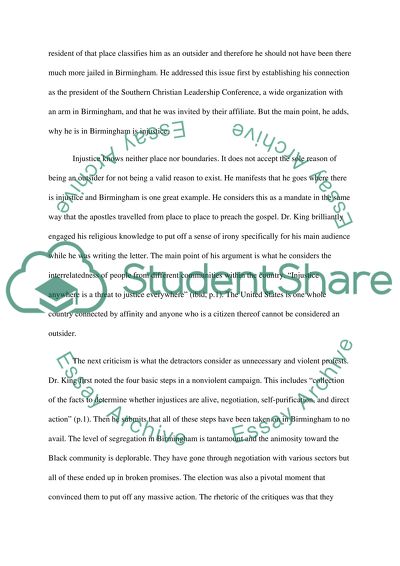Cite this document
(“Argumentive Analysis of Martin Luther King's Letter from Birmingham Essay”, n.d.)
Retrieved from https://studentshare.org/literature/1447763-argumentive-analysis-of-martin-luther-kings-letter
Retrieved from https://studentshare.org/literature/1447763-argumentive-analysis-of-martin-luther-kings-letter
(Argumentive Analysis of Martin Luther King'S Letter from Birmingham Essay)
https://studentshare.org/literature/1447763-argumentive-analysis-of-martin-luther-kings-letter.
https://studentshare.org/literature/1447763-argumentive-analysis-of-martin-luther-kings-letter.
“Argumentive Analysis of Martin Luther King'S Letter from Birmingham Essay”, n.d. https://studentshare.org/literature/1447763-argumentive-analysis-of-martin-luther-kings-letter.


